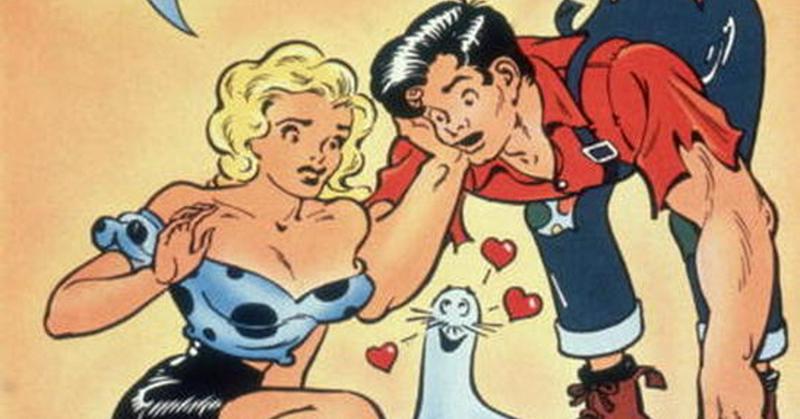Li'l Abner: The Comic Strip That Changed The Face Of The American South
By | November 9, 2021

Li'l Abner, a satirical American comic strip that appeared in newspapers across North America and Europe, chronicled the shenanigans of a motley crew of hillbillies living in the fictional Appalachian town of Dogpatch, U.S.A. Among them was Daisy Mae Scragg, a beautiful and hardworking woman hopelessly devoted to Abner; Mammy, the unofficial mayor of Dogpatch, and her husband, Pappy; and of course, Li'l Abner. In 1953, an even l'il-er Abner arrived on the scene in the form of Abner and Daisy Mae's son, Honest Abe.
Running for 43 years between August 13, 1934 and November 13, 1977, with 60 million readers across 1,000 newspapers, Al Capp's comic strip changed the way the whole world viewed the American South. As its goodhearted, scrappy characters prevailed through challenge after challenge, many readers began to question their assumptions about people who used words like "natcherly" and "double whammy." The strip actually introduced several words and concepts to the lexicon, including the idea of Sadie Hawkins dances and the shmoo, a fantasy creature in the comic strips whose name has been adopted by several fields of science to describe various processes and objects.

Capp himself, for better or worse, wasn't nearly so wholesome. He appeared to some to treat his beloved strip as nothing more than a business, though when he decided to retire, he refused to allow anyone to continue it, possibly because so many of his characters were connected to his real life. Mammy and Pappy, for example, were inspired by his own parents, Tillie and Otto.
Whatever the case may be, some might say it would have been better for everyone if Capp had handed over the reins of Li'l Abner. By the '60s, most of his primary assistants had been fired or resigned, and the second-rate talent he brought in to replace them couldn't capture the look and feel of the characters. Capp's personal politics also changed radically during this time, and he was accused of exposing himself to actresses who auditioned for his film and TV projects (including Goldie Hawn and Grace Kelly) as well as a group of college students.
As a result, many readers canceled their subscriptions to newspapers that ran Li'l Abner, which had by then considerably declined in quality. Capp was forced to face the writing on the wall and pulled the plug on the strip in 1977, just two years before his death from emphysema at age 70.

